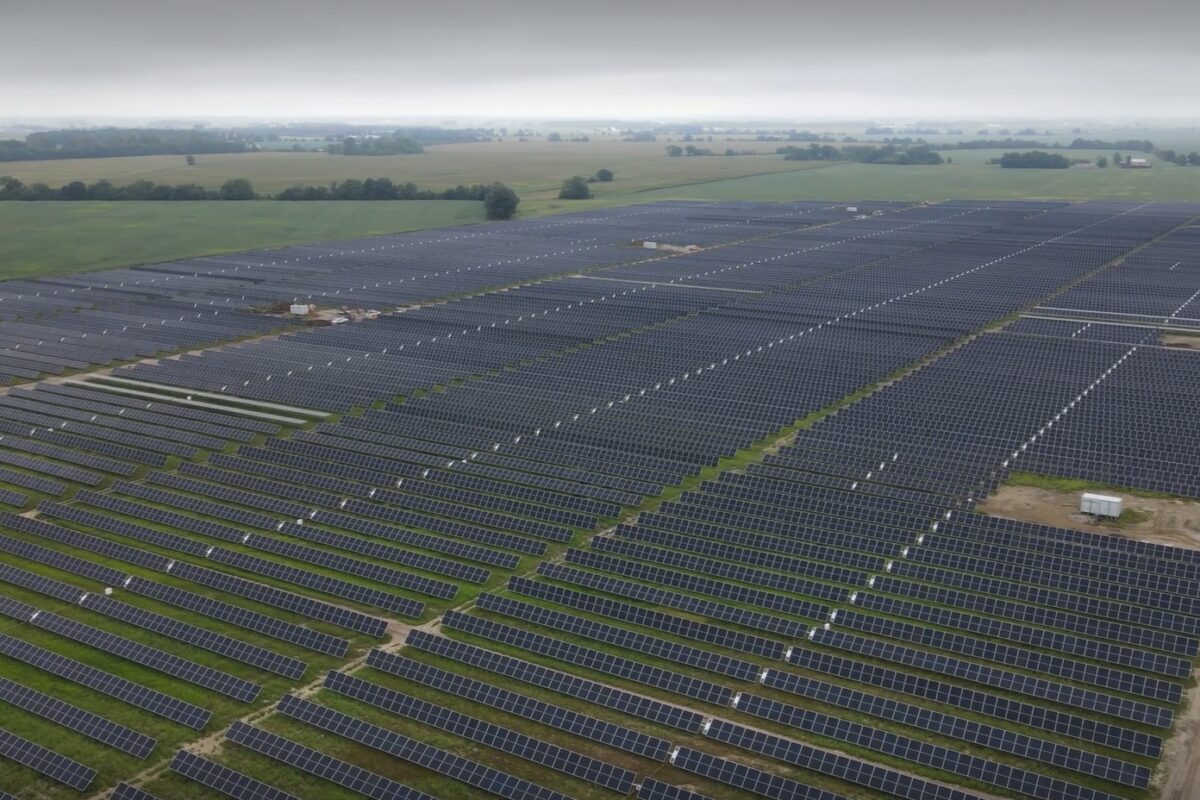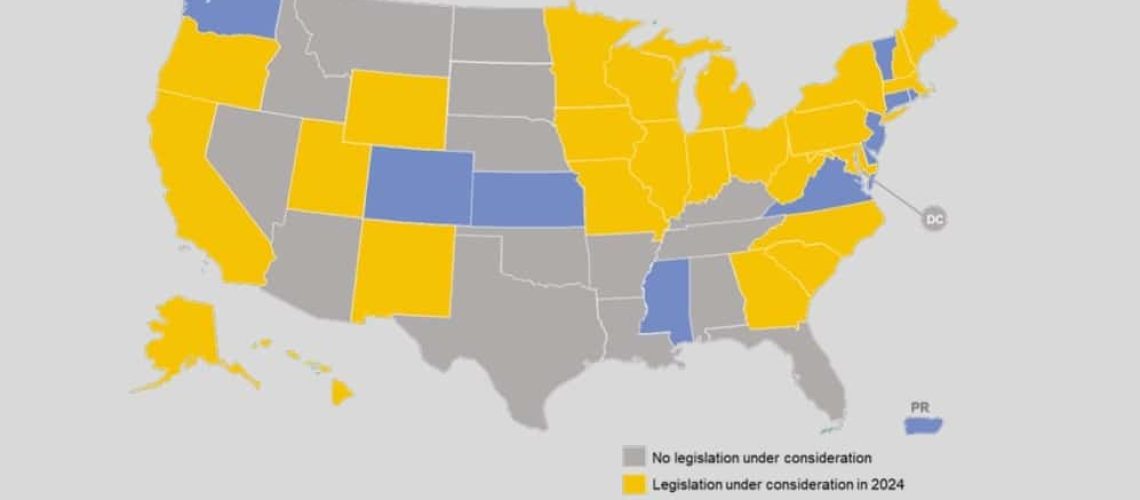Q2 2024 saw 44 states plus the District of Columbia and Puerto Rico take a total of 182 distributed solar policy actions.
The N.C. Clean Energy Technology Center (NCCETC) released its 50 States of Solar: Q2 2024 report that looks at state regulatory and legislative discussions that affect the distributed solar market in various states.
The report finds that many states are taking a close look at solar policies due to the influx of funding from the Inflation Reduction Act (IRA) going to state agencies and clean energy projects. Q2 2024 saw 44 states plus the District of Columbia and Puerto Rico take a total of 182 distributed solar policy actions.
In addition to states are examining the interplay of IRA funding and solar programs, other trends are seeing states initiate formal studies to inform net metering successor efforts, and states are modifying existing community solar programs.
The greatest number of actions address net metering policies (64), and residential fixed charge or minimum bill increases (48), and community solar policies (42). Most of these actions were taken in California, Arizona, Connecticut, New York, Pennsylvania, Massachusetts, and Virginia.
Top five distributed generation solar policy actions
In Q2 2024, six states issued decisions, passed legislation, enhance programs or initiated studies that pertain to solar policy:
California—Regulators at the Public Utilities Commission (CPUC) issued two major decisions on community solar and income-based fixed charges. The CPUC approved income-tiered residential fixed charges for the state’s investor-owned utilities, which range from $6.00 to $24.15. The CPUC also approved a new Community Renewable Energy Program and modifications to existing Green Tariff programs. The new community energy program will use existing procurement mechanisms like the Renewable Energy Market Adjustment Tariff and PURPA Standard Offer Contract as the foundation of the program.
Alaska— Alaska lawmakers passed legislation requiring the Commission-regulated utilities to offer community energy programs. The Regulatory Commission of Alaska is to develop several program specifications, including bill credit rates that consider the full economic value provided by community energy facilities. The Commission is also authorized to adopt a separate rate for capacity provided by energy storage as part of a community energy facility.
Colorado—Legislators in Colorado approved changes to the states’ community solar garden program. The revised program will begin in 2026 and focus on inclusive community solar development. It requires that at least 51% of a facility’s subscriptions be reserved for income-qualified customers and allows for the donation of excess credits to income-qualified customers. For income-qualified customers, the subscription charge is limited to 75% of the value of the bill credits, while this decreases to 70% if the project is receiving IRA funding for energy communities and 50% if IRA funding is being used to provide bill savings.
Connecticut and Washington—Lawmakers in these states initiated net metering studies. Connecticut’s study will consider whether the Renewable Energy Solutions Program should be extended and possible successors. Washington’s study will examine the value of distributed solar and storage and options that may be used after the net metering cap is reached.
Kansas—The Kansas legislature enacted legislation in April that increases the aggregate cap for net metering, as well as the individual system size limit. The aggregate cap will increase by 1% (of the utility’s highest annual peak demand since 2014) per year until reaching 5% in July 2027. The bill increases the system size limit to 150 kW for all customers and also provides guidance for net metering crediting under time-of-use rates.
“States are beginning — or rather, re-beginning — to study net metering programs, outside of the valuation of distributed solar,” said Rebekah de la Mora, senior policy analyst at NCCETC. “These investigations focus on program redesigns and successors, looking at the policies, economics, results, and future projections of net metering programs. Some of these investigations are already baked into law, like in Puerto Rico, while others were proposed by newly-passed bills, such as those in Delaware and Washington.”
One other state that made a big move as a result of federal funding is Mississippi, where the Public Service Commission has suspended multiple solar and storage incentives/programs in the state due to Solar for All funding.
Popular content




